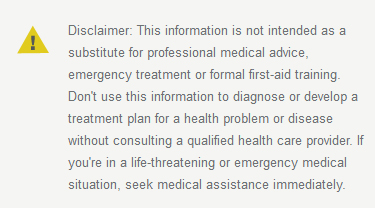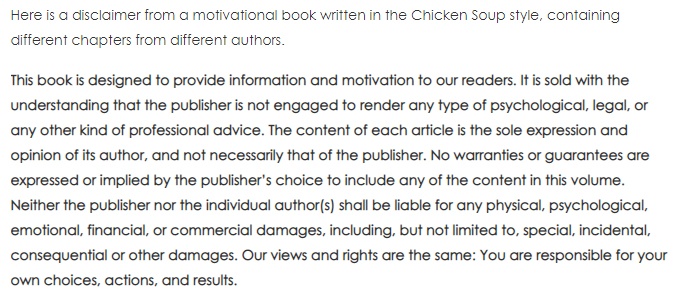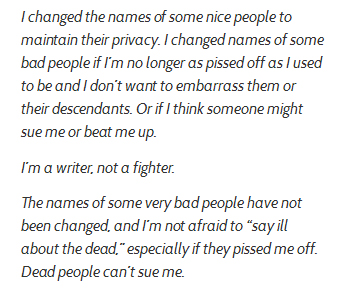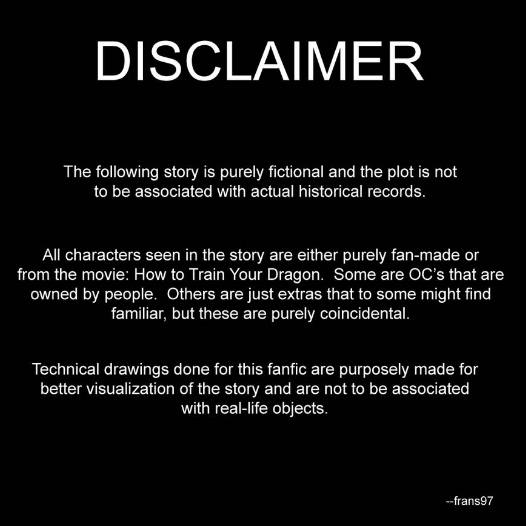Ebook Disclaimers
Thanks to tablets and smartphone reading apps, you can gobble up as many books as you want without having to scrounge up physical space for all of them. If you're an author, a marketer, or a business owner, this convenience allows you to harness the full power of eBooks -- whether you're trying to generate leads, launch a fiction career, share your life story, or simply offer some expert advice.
However, before you start cranking out eBook after eBook, you have to figure out what kind of disclaimers you need. After all, you want your eBook to work FOR you, not AGAINST you if you're ever dragged into a court of law!
What's an eBook Disclaimer?
To answer that question, you have to start by understanding how disclaimers work in general. A disclaimer is a way of limiting your legal liability. It's a written statement that specifies what kind of rights you have and which instances you're not taking responsibility for.
For example, when you take your kids to the neighborhood playground, you'll likely see a sign that says "Use at your own risk." This is a disclaimer for the owner of the playground. If something happens while you're there -- if one of your kids falls off the monkey bars and gets hurt, for example -- the owner of the playground isn't legally liable for it. If you take the owner to court, you'll likely lose because you saw the sign, and you knew that you were using the playground at your own risk.
In the beginning of your eBook, you'll need to have a disclaimer that tells your readers exactly what you're not taking responsibility for.
You're not required by law to include any kind of disclaimer, but if you want to be as protected as possible, a good eBook disclaimer is a must have.
What kind of liability can you face as an eBook author or publisher?
The general answer is "a lot!" But, more specifically, your liability depends on the subject matter of your book.
For example, if you've written an eBook about traumatic brain injuries, you need a disclaimer that tells your readers that they shouldn't make any medical decisions based solely on your advice, and that the information you've provided isn't meant to replace a trip to the doctor or a call to 911.
This is the disclaimer that's posted on the Mayo Clinic's First Aid web page. You'll need to use something very similar in your eBook disclaimer if you cover a medical topic:

A similar disclaimer would be needed if you wrote an eBook that contained financial advice. However, in addition to telling readers that your information shouldn't be the sole basis for any decision, you also need to include a disclaimer about results.
Specifically, you need to make it clear that you saw a great return on your money from following this advice, but that there's no guarantee that everyone will have the same results you did.
Here's a good way to sum that up:

If you write an eBook about sports or fitness training, it's wise to include a disclaimer similar to the one that bestselling author and publisher Richard McMunn uses:

If you're a lawyer, your eBook should include a specific disclaimer that tells your readers not to treat your content as legal advice.
Business attorney Helen Sedwick came up with some simple language that covers all of the necessary details:

This risk for liability is typically greatest for self-published authors because they don't have the benefit of a big publishing company with a legal department that checks each book. However, even if you have a publisher, you can still be held liable for issues in your eBook.
So what's a good way to limit that liability as much as possible?
Make sure that your eBook disclaimer includes the author AND the publisher, like this one that Natural & Thrifty uses:

What about fiction eBooks?
Fictional eBooks come with some unique disclaimer quirks, which we will discuss a little later.
But whether you're dealing with fiction or nonfiction, do you see how tedious this can get?
In fact, eBooks come with so much potential for liability that there are actually companies who sell insurance to publishers. These insurance policies can help pay for things like lawyer's fees if you get sued, or medical bills if someone was injured as a result of the content of your eBook.
However, there are limits to the protection that an eBook disclaimer can give you.
If you try to use a disclaimer in order to use someone else's copyrighted material, it will not hold up in court.
In the US, copyright law includes something called "fair use." Simply put, you can use snippets of copyrighted material without getting the copyright owner's consent, as long as:
- You're using the material in a limited and "transformative" way, such as criticism, parody, or commentary
- You're not doing anything to damage the value of the copyrighted material
- Your use doesn't curtail any profits that the copyright owner reasonably expects from his work
For example, if your eBook contains a quote from a newspaper article about a scientific study that was recently performed, it would be considered fair use. But if you printed the entire article in your eBook, that would be a copyright violation.
In that last situation, a disclaimer like this one won't protect you:

While this disclaimer was written for a physical product, the same theory applies to your eBooks. Just because you tell your readers that you don't claim to be the owner of certain material doesn't mean that you can use copyrighted material beyond fair use. If the copyright owner were to sue you, he would most likely win.
The copyright laws are very similar in the UK. The only difference is that British law refers to "fair dealing" instead of "fair use." There are also similar copyright laws in Canada, and Canadian lawmakers also use the term "fair dealing." "Fair dealing" is also the term of choice in Australian copyright law.
Worried about writing your own eBook Disclaimer?
Some authors and publishers have an entire legal team to write their disclaimers, but you don't have to run out and hire a lawyer. If you can't afford to pay a lawyer to write your disclaimer, that's Ok. Authors and publishers can get a free helping hand from some expert advice around the web.
If your eBook has multiple authors, Alicia Dunams has some language you can use to build a disclaimer that limits everyone's liability. However, you could change this up a bit to make it work for single-authored works:

Another great way to write your eBook disclaimer is to look at the bestsellers in your category and see what they put in their disclaimer. For example, if you've written an eBook about stock trading, go look at the current financial bestsellers. Odds are these disclaimers were drawn up by a publisher's legal team, so they'll include all of the necessary details. You can then use this as a reference for creating your own.
What if your fiction book isn't 100% fiction?
It's not uncommon for fictional characters to live in a town that exists in real life or shop at real stores. Here's an easy way to word your disclaimer so that it covers both the fictional and non-fictional details:

But even though eBook disclaimers are serious business, they don't have to be seriously boring.
There's no rule that says your eBook disclaimer has to be chock full of legal details that make people fall asleep before getting to the end. In fact, the more interesting your eBook disclaimer is, the more likely people are to read and remember it!
Business attorney Helen Sedwick searched for some really creative eBook disclaimers and found a funny one that Michael N. Marcus used in his memoir. Memoirs are tricky eBooks to write disclaimers for because they're not fiction. They include details and descriptions of real people, which can be hurtful to the people involved -- which can easily turn into a legal hassle for the author if the person involved wants payback.
Here's how Michael N. Marcus creatively dealt with that challenge:

Put a disclaimer like this at the beginning of your own eBook, and readers will instantly know that you've got some serious creativity. If the disclaimer is this riveting, the book has to be even better!
Memoir authors should also mention the fact that the conversations detailed in their book may not be the identical conversation that was held in real life.
Cate Macabe shared a few examples in her blog post, "Writing the Memoir: Disclaimers":

Here's a disclaimer that's a little more conversational:

Another type of eBook that comes with some disclaimer challenges is fan fiction.
Fan fiction eBooks are new stories about the characters in an existing book, TV show, movie, song, etc. But instead of being written by the original author, these eBooks are written by fans.
One of the most popular subjects for fan fiction is Twilight. In fact, there are entire websites that are devoted solely to Twilight fan fiction stories!
But how do you put the right disclaimer on these stories?
Part of it depends on the author. There are some authors who are happy to let their fans write about the characters, storylines, and settings they've created -- as long as the fan fiction comes with a clear disclaimer that assigns all of the rights to the original author.
Even if your author doesn't give you any specific disclaimer instructions, it's still important to make sure that readers know they're dealing with a fan fiction book, instead of something new from the author herself.
Here's a good example:

As a general rule, it's good to include these 5 things in your fan fiction disclaimer:
- A beginning statement that says whose world and characters you're using
- A clear statement that you don't own -- or claim to own -- the characters in the story
- A clear explanation that this story was created in your own imagination, instead of trying to link it to a popular storyline that the original author has already created
- A clear statement that says you're not making any kind of profit from this fan fiction
- A final thank you to the original author for creating this world in the first place
However, a great disclaimer isn't foolproof.
As fan fiction gets more and more popular, there is more and more debate over whether or not it's a copyright infringement. As of 2018, US legal experts say that fan fiction falls under the fair use exception of copyright law. However, that may change at some point.
If you never reached out to the author to get her permission before beginning your fan fiction eBook, it may not matter what your disclaimer says. Some authors will sue anyone who uses their characters, settings, and/or storylines. If you come across one of these authors, a judge probably won't care that you included a disclaimer.y
While eBooks may feel more informal than traditional hardcover or paperback books, they come with all the same liability risks. By taking the necessary steps to create a proper disclaimer, you'll be able to rest easy knowing that you've done everything possible to protect yourself.